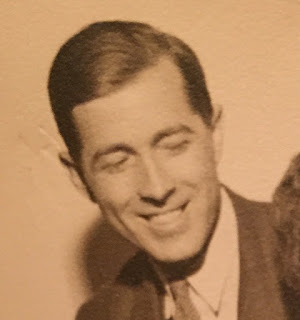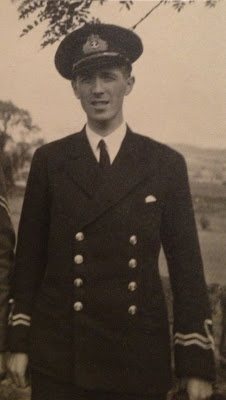Our meetings may well take place in different places, but whether it’s the naming of a child, a marriage, or a funeral, we are always talking about the same subject: the importance of love in our lives.
I first met the Forsyths over in Fife, when I married their daughter Julie to her husband Angus.
I met them again in Edinburgh, when we held a memorial ceremony for Linda’s mother Muriel, and just the other day, when I conducted the funeral for William’s father, Dr. Gilbert Forsyth, I met them in Ayrshire, where for most of his professional career, Gilbert had been a very well-respected consultant.
When we said goodbye to Muriel, it was very relaxed. Her memorial took place in the family home, so we had all the time in the world, and no fewer than eleven members of the family spoke.
Gilbert’s funeral however had to be held in a crematorium.
He’d been an important figure in his community, and it was important to allow them to pay their last respects. He had not only lived an extraordinary life, but had also reached the remarkable age of 101, so it looked like quite a challenge to do it justice in the 35 minutes we had at our disposal.
I think we managed.
It’s a mark of the esteem in which Gilbert was held that the crematorium wasn’t just packed, it was standing-room only. And even though I couldn’t tell all the stories about him that I might otherwise have done, I was very pleased to get this message from William.
“A belated but heartfelt thanks for not only the excellent eulogy you offered re Dad, his life and as a person, but the care, attention and warmth you showed to me and our family.
A number of friends and family, not so familiar with the humanist approach, made appreciative mention of your good self and the whole nature and tenor of the service.
Hopefully the next time we are in touch it will be for a more cheerful reason, though perhaps I should not say that, as you helped make last Wednesday a celebration as much as a rite of passage at the end of Dad’s life.”
Having only just qualified as a doctor, on the outbreak of the Second World War, Gilbert was commissioned into the Royal Navy, where he served in various theatres of war, including the harrowing Arctic Convoys to Murmansk that were quite possibly the most dangerous voyages any sailor has ever made.
He was shipwrecked twice, and no amount of encouragement could persuade him to talk about his experiences. He always said, “it was bad enough at the time”, and he had no wish to talk about it. He was a reluctant war hero – only too aware of how much worse it had been for others.
For obvious reasons, the family asked me if they could have the hymn, ‘Eternal Father, Strong to Save’, better known to seafarers as ‘For Those in Peril on The Sea’. I agreed, as I hope you do: what could have been more appropriate?
There appears to be a widespread belief in Scotland that humanist funerals cannot include hymns, but that’s not the case. There are celebrants who will refuse to allow them, but I am not one of them.
Humanist ceremonies are not religious, but following the example of the British Humanist Association, I take the view that as religion has been a part of our culture for centuries, it is simply compassionate to include hymns where they reflect the character and life experiences of the deceased.
As William also said, “In essence the ability to have this single, appropriate hymn, added balance to a service that would have had likely more symbolism than relevance, while still capturing the essence of the man, not often captured so well at more (till now) traditional funerals.”


0 Comments Leave a comment